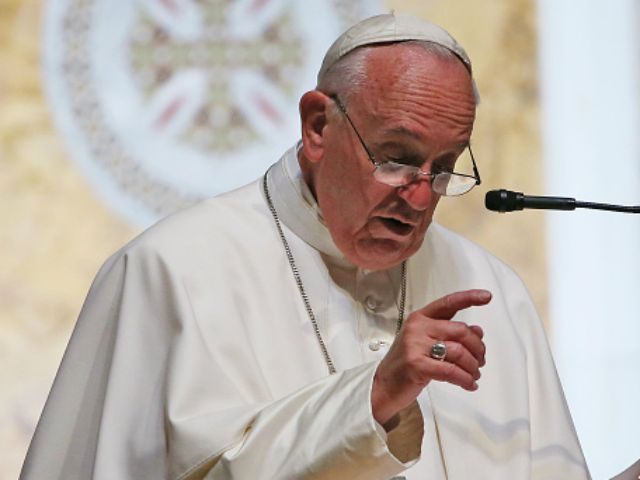Expectations are high for Pope Francis’s address to the United Nations General Assembly and the 150 world leaders gathered for the U.N. Sustainable Development Summit 2015. U.N. Secretary General Ban Ki-moon has described Pope Francis as “a man of humility and humanity,” and “a man of moral voice, and purpose.”
“Laudato Si”, the Pope’s environmental encyclical, is likely to be the centerpiece of his remarks, with sections on the environment and climate receiving a warm welcome from U.N. agencies and officials.
But what will the response be to his moral voice as expressed in “Laudato Si” calling “the justification of abortion” incompatible with “concern for the protection of nature”?
In “Laudato Si” Pope Francis reminds us that human beings possess a “particular dignity above other creatures” that “inculcates esteem for each person and respect for others.” He expresses the need to “genuinely teach the importance of concern for other vulnerable beings, however troublesome or inconvenient they may be” and questions how this is possible if collectively we “fail to protect a human embryo, even when its presence is uncomfortable and creates difficulties.”
Pope Francis desires protection for all, without exception. The Holy Father clearly and concisely connects concern for nature with concern for the vulnerable concluding, “When we fail to acknowledge as part of reality the worth of a poor person, a human embryo, a person with disabilities…it becomes difficult to hear the cry of nature itself; everything is connected.”
The inter-connectedness of respect for life with respect for the environment is a message that will resonate with many leaders from developing countries who are expected to adopt the post 2015 development agenda as detailed in the document Transforming our world: the 2030 Agenda for Sustainable Development. The 17 Sustainable Development Goals (SDGs) and 69 targets are designed to “transform our world” in the next 15 years, beginning January 2016, at a cost of $5 to $7 trillion per year from all funding sources, public and private, according to the World Investment Report 2014, Investing in the SDGs: An Action Plan by the United Nations Conference on Trade and Development.
However, the 2030 Agenda, while emphasizing the worth and dignity of the individual and pledging that “…no one will be left behind” incorporates targets that advance access to abortion and renders such a lofty aspiration false as the human embryo, the unborn child, is not protected and is “left behind.”
Target 3.7 includes “ensure universal access to sexual and reproductive health-care services” and Target 5.6 includes “Ensure universal access to sexual and reproductive health and reproductive rights.” These terms when used at the United Nations are understood to include abortion and are opposed by many countries with pro-life policies. That opposition was made known during negotiations on the 2030 Agenda.
Arguments for the “the justification of abortion” often rely on the distortion of universally recognized human rights. “Human rights” and “justice” are two examples of terms that have been manipulated and re-invented to advance the destructive act of abortion as a “woman’s human right” or as “economic, social or reproductive justice.”
The Summit takes place 70 years after the founding of the United Nations, which in the Universal Declaration of Human Rights recognized the human rights of all members of the human family, including the right to life, without exception. Human dignity belongs to all with no exceptions for age, stage of development or condition of dependency. No human life, including human embryos as valued members of the human family, should have their right to life denied.
Selective exclusion of the “right to life” for any member of the human family impacts the right to life of all by bestowing an arbitrary status to an inalienable right that is dependent on the subjective views of others, rendering the unborn child’s right to life contingent on whether or not she is “wanted” by another, considered “worthy of life,” deemed “perfect” enough, or whether her presence makes someone “uncomfortable” or “creates difficulties.”
Every life has human dignity and deserves to be protected from conception to natural death regardless of circumstances.
The 2030 Agenda remains unfinished as the critical indicators that will be used to measure progress are still to be finalized. There is time to ensure that indicators, while expressing “concern for the protection of nature,” do not “justify abortion” but instead ensure that “no one will be left behind.”
Pope Francis truly seeks a world in which “no one will be left behind.”
Will his message be heard?
Marie Smith is the founder and director of the Parliamentary Network for Critical Issues (www.pncius.org). Father Frank Pavone is president of the National Pro-Life Religious Council and the author of Abolishing Abortion.

COMMENTS
Please let us know if you're having issues with commenting.